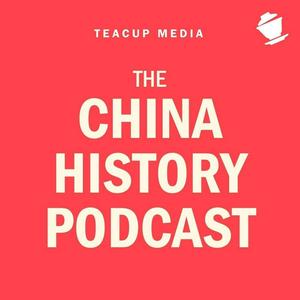Ottoman History Podcast
Historia, Noticias, Política, Religión y espiritualidad, Islam, Religión y espiritualidad, Religión, Arte, Libros, Música, Educación, Salud y forma física, Medicina, Tecnología, Religión y espiritualidad, Cristianismo, Cultura y sociedad, Filosofía, Ciencias, Astronomía, Ocio, Juegos, Ficción, Ciencia ficción, Deportes, Basquetbol, Arte, Gastronomía, Economía y empresa, Marketing

